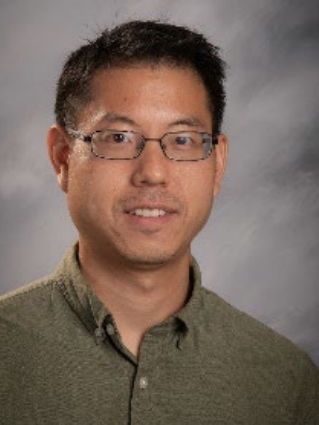Recent News
Seminar: Dr. Rohit Parasnis
March 28, 2025
Student's fire safety research wins ASEE conference award
March 27, 2025
Seminar: Dr. Keith Paarporn
March 26, 2025
Seminar: Dr. Shirin Panahi
March 20, 2025
News Archives
Seminar: Dr. Keith Paarporn
March 26, 2025
Model Discovery, Forecasting, and Control in Complex Engineering Systems
Keith Paarporn, University of Colorado, Colorado Springs

Thursday, March 27, 2025 in MECH 310
2:00-3:00 P.M.
Assistant Professor Candidate
Abstract:
A “Tragedy of the Commons" refers to scenarios in which individuals acting according to their own self-interest leads to over-consumption and consequently the collapse of a shared common resource. They arise in numerous consequential real-world problems (traffic congestion, epidemics, and distributed multi-agent autonomous systems) that pit selfish individual desires against collective benefits. A long-standing challenge is to understand the factors that enable cooperative behaviors to emerge, and ultimately for tragedies to be averted. Two primary approaches involve 1) devising incentive policies that discourage consumption behavior and 2) understanding how individuals learn and make decisions, warranting the use of game-theoretic tools. In this talk, I will discuss recent results and opportunities for which evolutionary gametheoretic models can be leveraged and extended, focusing on the impact of alternate and heterogeneous agent learning behaviors that go beyond the well-studied replicator equation. In particular, we study agents endowed with varying levels of rationality. We find that, counterintuitively, agents with low or high rationality are unable to coordinate on collective benefits, but agents with an intermediate level of rationality are. We discuss these results in the context of a class of population dynamics models known as “feedback-evolving games”, which has emerged as an effective framework to address these challenges.
Biography:
Keith Paarporn is an Assistant Professor in the Department of Computer Science at the University of Colorado, Colorado Springs. He received a B.S. in Electrical Engineering from the University of Maryland, College Park in 2013, an M.S. in Electrical and Computer Engineering from the Georgia Institute of Technology in 2016, and a Ph.D. in Electrical and Computer Engineering from the Georgia Institute of Technology in 2018. From 2018 to 2022, he was a postdoctoral scholar in the Electrical and Computer Engineering Department at the University of California, Santa Barbara. He is a recipient of the NSF ERI Award (2024) and the computer science Tenure-track Faculty of the Year award at UCCS. His research interests include game theory, control theory, and their applications to multi-agent systems and security.
